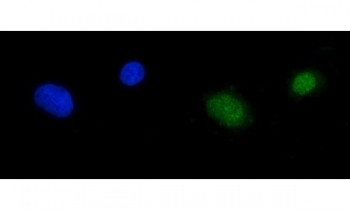Cookie preferences
This website uses cookies, which are necessary for the technical operation of the website and are always set. Other cookies, which increase the comfort when using this website, are used for direct advertising or to facilitate interaction with other websites and social networks, are only set with your consent.
Configuration
Technically required
These cookies are necessary for the basic functions of the shop.
"Allow all cookies" cookie
"Decline all cookies" cookie
CSRF token
Cookie preferences
Currency change
Customer-specific caching
FACT-Finder tracking
Individual prices
Selected shop
Session
Comfort functions
These cookies are used to make the shopping experience even more appealing, for example for the recognition of the visitor.
Note
Show the facebook fanpage in the right blod sidebar
Statistics & Tracking
Affiliate program
Conversion and usertracking via Google Tag Manager
Track device being used
| Item number | Size | Datasheet | Manual | SDS | Delivery time | Quantity | Price |
|---|---|---|---|---|---|---|---|
| NSJ-R32042 | 100 µg | - | - |
3 - 10 business days* |
755.00€
|
If you have any questions, please use our Contact Form.
You can also order by e-mail: info@biomol.com
Larger quantity required? Request bulk
You can also order by e-mail: info@biomol.com
Larger quantity required? Request bulk
0.5mg/ml if reconstituted with 0.2ml sterile DI water. Replication protein A 70 kDa DNA-binding... more
Product information "Anti-RPA70 / RPA1"
0.5mg/ml if reconstituted with 0.2ml sterile DI water. Replication protein A 70 kDa DNA-binding subunit is a protein that in humans is encoded by the RPA1 gene. This gene is mapped to chromosome 17p13.3. Replication protein A (RPA) is a heterotrimeric single-strand DNA (ssDNA)-binding protein essential for DNA replication, repair, and recombination. It is composed of 70-kD (RPA1), 32-kD (RPA2), and 14-kD (RPA3) subunits. The RPA1 subunit is responsible for high-affinity ssDNA binding. The RPA complex was originally isolated as a factor essential for in vitro replication of the papovavirus SV40. It had been found that recombinant human RPA1, purified from bacteria, exhibited ssDNA-binding activity comparable to that of the complete RPA complex. RPA1 could substitute for the complete complex in stimulating the activity of DNA polymerase alpha-primase, but it could not substitute for the complete complex in SV40 DNA replication in vitro, suggesting an important functional role for the other subunits. Protein function: As part of the heterotrimeric replication protein A complex (RPA/RP-A), binds and stabilizes single-stranded DNA intermediates, that form during DNA replication or upon DNA stress. It prevents their reannealing and in parallel, recruits and activates different proteins and complexes involved in DNA metabolism (PubMed:27723720, PubMed:27723717). Thereby, it plays an essential role both in DNA replication and the cellular response to DNA damage (PubMed:9430682). In the cellular response to DNA damage, the RPA complex controls DNA repair and DNA damage checkpoint activation. Through recruitment of ATRIP activates the ATR kinase a master regulator of the DNA damage response (PubMed:24332808). It is required for the recruitment of the DNA double-strand break repair factors RAD51 and RAD52 to chromatin in response to DNA damage (PubMed:17765923). Also recruits to sites of DNA damage proteins like XPA and XPG that are involved in nucleotide excision repair and is required for this mechanism of DNA repair (PubMed:7697716). Also plays a role in base excision repair (BER) probably through interaction with UNG (PubMed:9765279). Also recruits SMARCAL1/HARP, which is involved in replication fork restart, to sites of DNA damage. Plays a role in telomere maintenance (PubMed:17959650, PubMed:34767620). As part of the alternative replication protein A complex, aRPA, binds single-stranded DNA and probably plays a role in DNA repair. Compared to the RPA2-containing, canonical RPA complex, may not support chromosomal DNA replication and cell cycle progression through S-phase. The aRPA may not promote efficient priming by DNA polymerase alpha but could support DNA synthesis by polymerase delta in presence of PCNA and replication factor C (RFC), the dual incision/excision reaction of nucleotide excision repair and RAD51- dependent strand exchange (PubMed:19996105). [The UniProt Consortium]
| Keywords: | Anti-RPA1, Anti-REPA1, RPA70 Antibody / RPA1 |
| Supplier: | NSJ Bioreagents |
| Supplier-Nr: | R32042 |
Properties
| Application: | WB, IF, FC |
| Antibody Type: | Polyclonal |
| Conjugate: | No |
| Host: | Rabbit |
| Species reactivity: | human |
| Immunogen: | Amino acids QESAEAILGQNAAYLGELKDKNEQAFEEVFQNANFR of human RPA1 |
| Format: | Purified |
Database Information
| KEGG ID : | K07466 | Matching products |
| UniProt ID : | P27694 | Matching products |
| Gene ID | GeneID 6117 | Matching products |
Handling & Safety
| Storage: | -20°C |
| Shipping: | -20°C (International: -20°C) |
Caution
Our products are for laboratory research use only: Not for administration to humans!
Our products are for laboratory research use only: Not for administration to humans!
Information about the product reference will follow.
more
You will get a certificate here
Viewed














